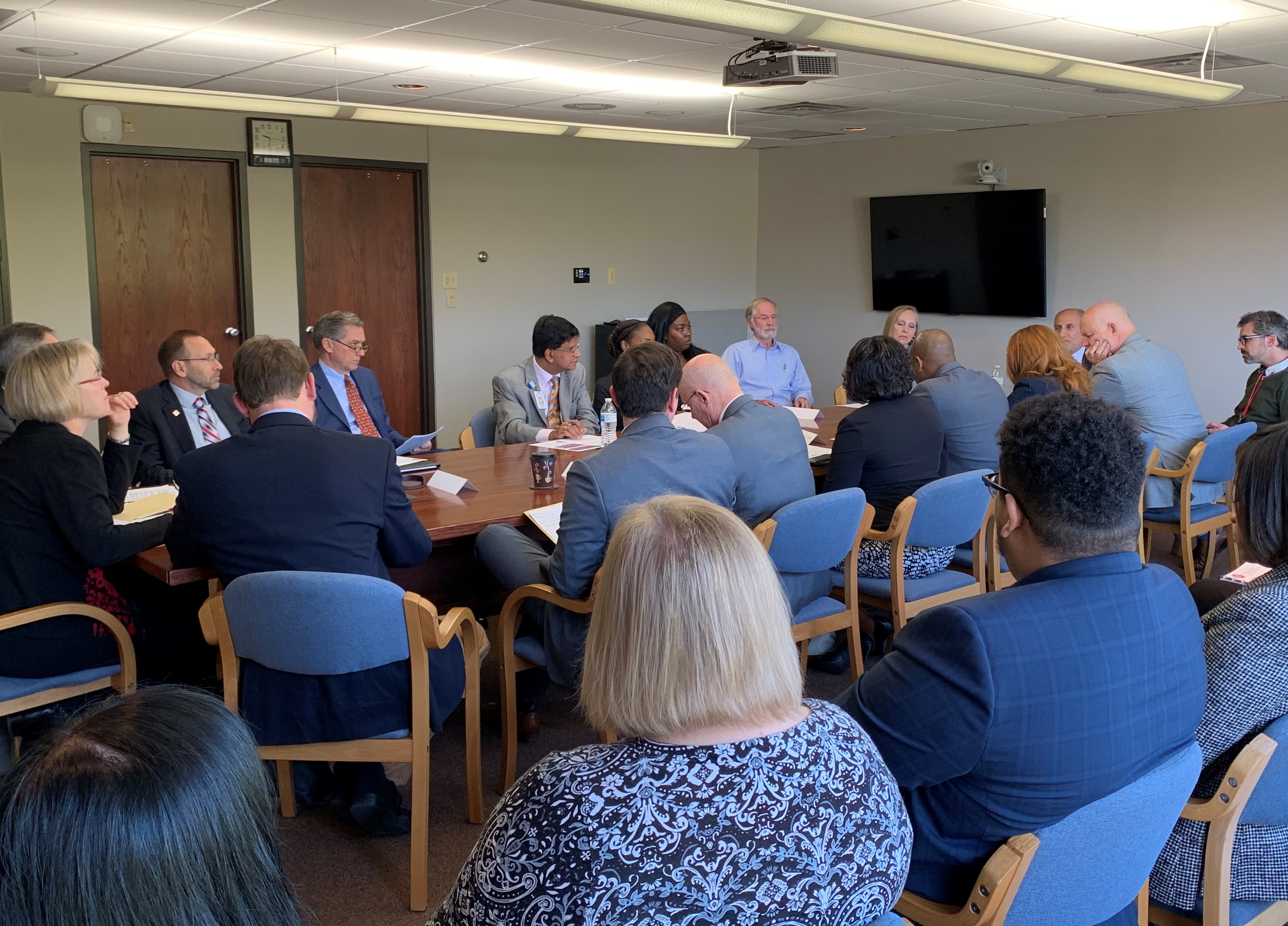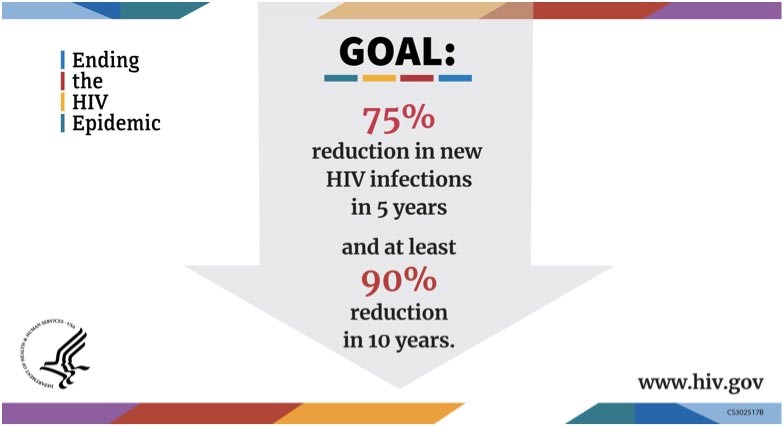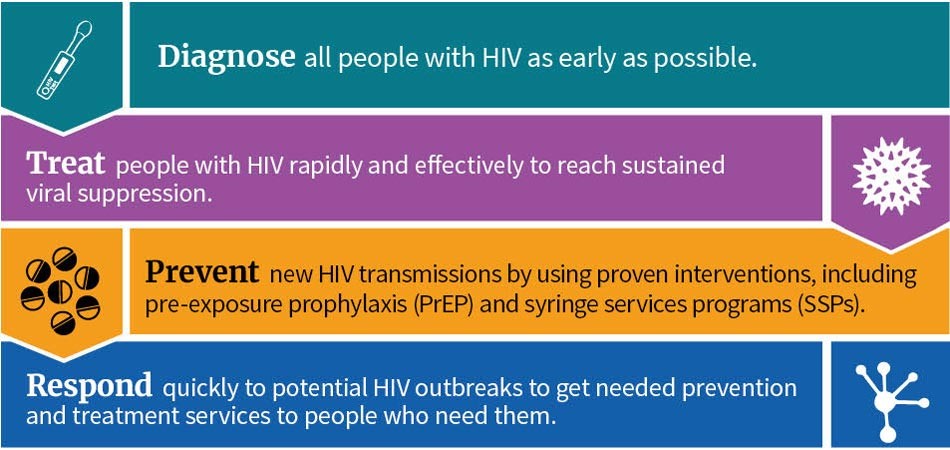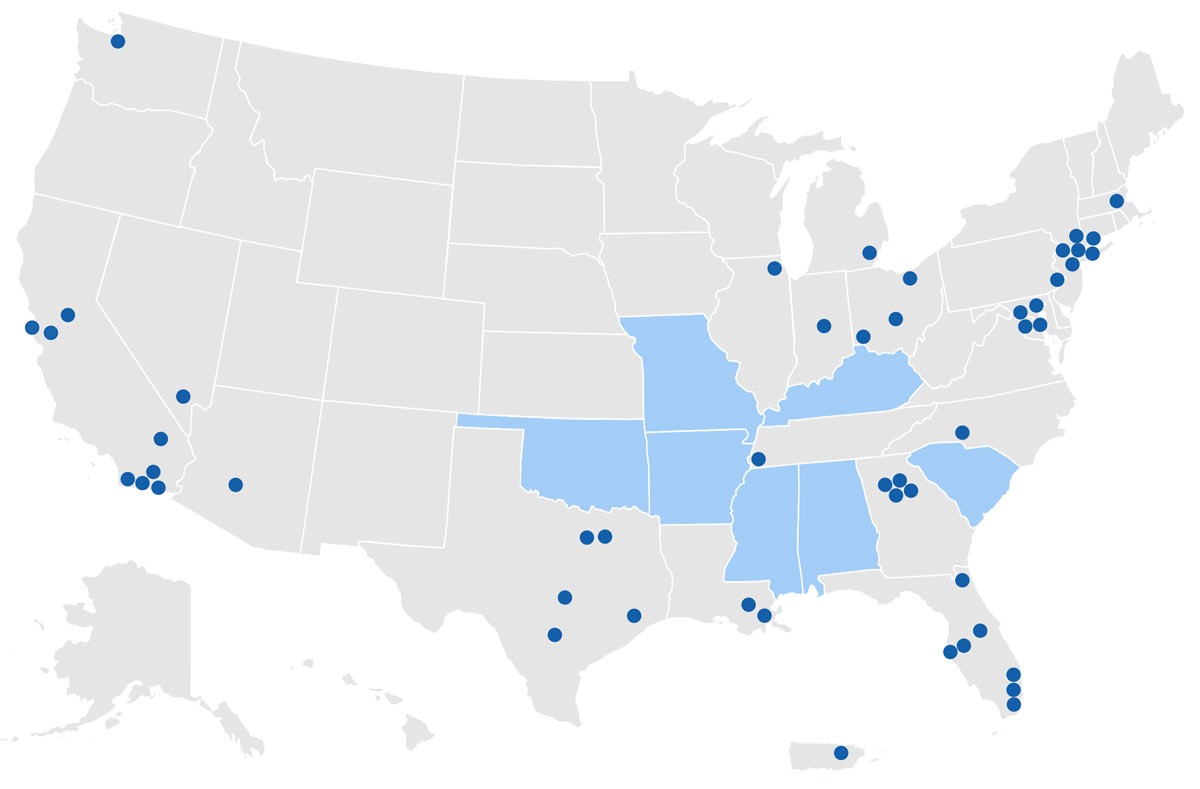Dear Friends,
Recently, I had the opportunity to address public health concerns and work on ending the HIV epidemic in Arkansas. Decades after the first reports that led to the discovery of HIV, the disease still continues to tear apart too many American families.
In Little Rock, I met with leaders (pictured below) from the Arkansas Department of Health (ADH), Centers for Disease Control and Prevention (CDC), Health Resources and Services Administration (HRSA), National Institutes of Health (NIH), and the Substance Abuse and Mental Health Services Administration (SAMSA).
 |
| Above: Congressman Hill met with state and federal health leaders in Little Rock during a roundtable discussion on ending the HIV epidemic in Arkansas. Congressman Hill, pictured center with red tie; Dr. Naveen Patil, ADH Medical Director for Infectious Diseases to the congressman's right; Dr. Nate Smith, Arkansas Health Secretary to Congressman Hill's left; Dr. Laura Cheever and Mr. Michael McRae pictured farthest left. |
In President Trump’s 2019 State of the Union address, he set the ambitious goal of ending HIV transmissions by 2030 under the new initiative, Ending the HIV Epidemic: A Plan for America.
Under this ten-year strategy, Arkansas is among seven states, 48 counties, Washington, DC, and San Juan, Puerto Rico that have been identified as having a substantial rural HIV burden.

Source: hiv.gov, for more information, click HERE. |
Within the next five years, the U.S. Department of Health and Human Services (HHS) aims to reduce new HIV infection by 75% and has vowed to reduce infections by at least 90% in ten years. Its plan is to work with individual communities to establish local teams on the ground to tailor and implement the most effective strategies to diagnose, treat, prevent, and respond to HIV infections.

Source: hiv.gov, for more information, click HERE. |
Dr. Laura Cheever and Mr. Michael McRae of HRSA reported that there are 6,000 diagnosed cases of HIV in Arkansas. However, only 3,000 of those patients are actively receiving treatment to suppress the virus.
I also recently met with Dr. Gopal Khanna, Director of HHS’s Agency for Healthcare Research and Quality (AHRQ) who reported that Arkansas is 162% over the national benchmark for “new HIV cases per 100,000 population age 13 and over.”
Under Health Secretary Dr. Nate Smith, the Arkansas Department of Health (ADH) has taken a leading role in combating HIV. In all 75 counties in Arkansas, HIV testing is now available. ADH is also working with rural community health centers to get more diagnosed patients in treatment and prevent new infections by identifying at-risk Arkansans and helping them get pre-exposure preventative care and education. Currently, there are 137 community health centers in Arkansas and they serve as a key health delivery asset, particularly in our rural counties.
 |
| Geographic Hotspots: The 48 counties, plus Washington, DC, and San Juan, PR, were greater than 50% of HIV diagnoses that occurred in 2016 and 2017, and an additional seven states with a substantial number of HIV diagnoses in rural areas. Source: hiv.gov, for more information, click HERE. |
In this year’s funding bills, HRSA and the CDC are requesting $70 million and $140 million, respectively, in funding to support state and local treatment and elimination initiatives that directly benefit Arkansans who need help the most. This is why it is crucial to pass federal spending bills, not temporary stop-gap spending measures—so our neighbors can get the prevention, treatment, and education services they so desperately need.
Partnerships between private and non-profit clinics with federal, state, and local governments are crucial to combat this crisis. Targeted funds and programs supporting these partnerships are essential for their success. I am proud to support these vital partnerships and work to keep Arkansans safe and healthy. Together, we can all play a role in making sure that community leaders have the resources they need to end the HIV epidemic.
To learn more about the Arkansas Department of Health’s HIV Elimination Plan, click HERE.
To learn more about Ending the HIV Epidemic: A Plan for America, click HERE.
Sincerely,

Representative French Hill
|

